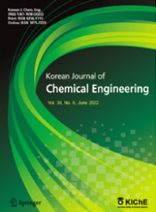Overall
- Language
- English
- Conflict of Interest
- In relation to this article, we declare that there is no conflict of interest.
- Publication history
-
Received June 25, 2023
Accepted November 26, 2023
-
 This is an Open-Access article distributed under the terms of the Creative Commons Attribution Non-Commercial License (http://creativecommons.org/licenses/bync/3.0) which permits
unrestricted non-commercial use, distribution, and reproduction in any medium, provided the original work is properly cited.
This is an Open-Access article distributed under the terms of the Creative Commons Attribution Non-Commercial License (http://creativecommons.org/licenses/bync/3.0) which permits
unrestricted non-commercial use, distribution, and reproduction in any medium, provided the original work is properly cited.
Most Cited
Process Analysis and Environmental Assessment of Gelatin Production From Shrimp Shell Wastes
Abstract
The demand for gelatin is increasing in the market due to its use in functional foods, beverage products, and pharmaceuticals.
However, most gelatin is made from pig/bovine which is not halal, making it unsuitable for consumption by some
people. Therefore, an alternative raw material for gelatin production should be found to meet the restrictions of gelatin
sources. Shrimp shells, a food waste from shrimp production, can be used as an alternative source for gelatin as it contains
protein, chitin, and minerals. This research aimed to study the development of the gelatin production process from shrimp
shells and evaluated the techno-economic analysis of two diff erent biochemical processing scenarios. The results showed
that the production yield was 40% and 45% for scenarios I and II, respectively. To address economic feasibility, various
economic indicators were evaluated. The payback period was 4.20 and 0.90 years, and the return on investment was 27.03%
and 124.33% for scenarios I and II, respectively. Additionally, the energy effi ciency was 7.28 and 8.01 kg of product/kWh
and the environmental impacts were 0.28 and 0.24 kg of CO 2 equivalent for scenarios I and II, respectively. This developed
gelatin process from shrimp shell biomass could be a promising technology for gelatin production at an industrial scale.

